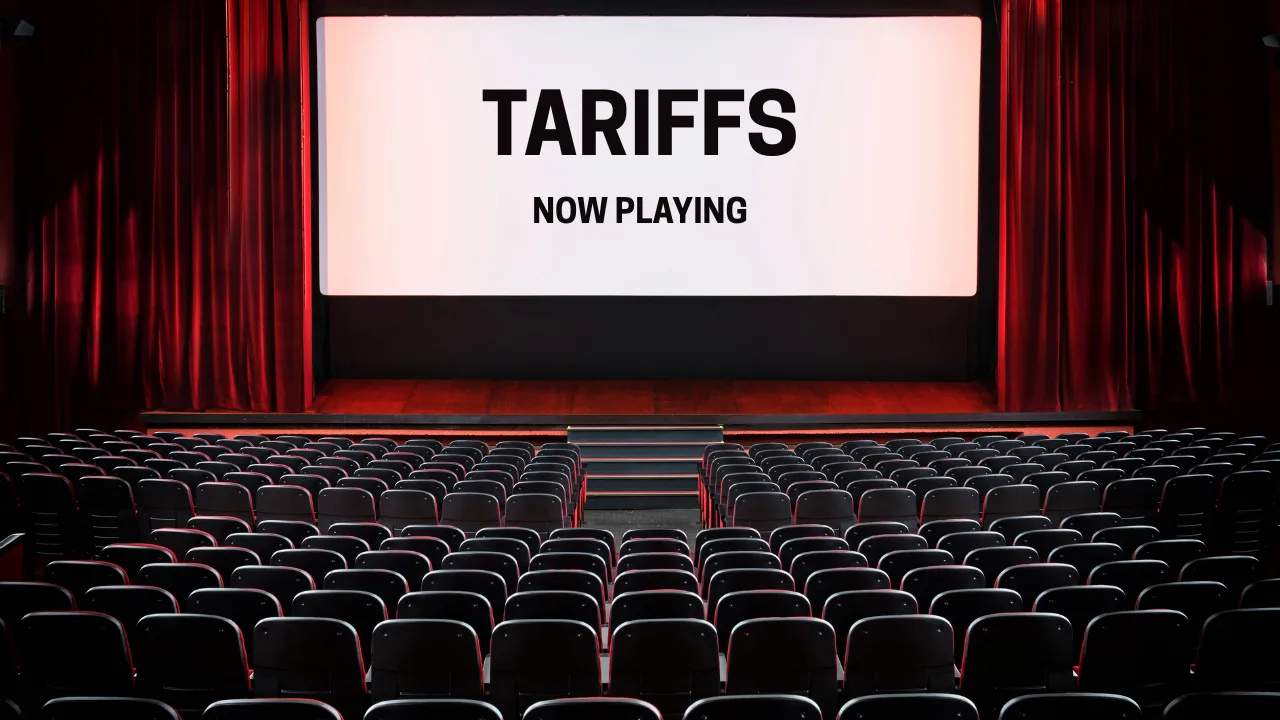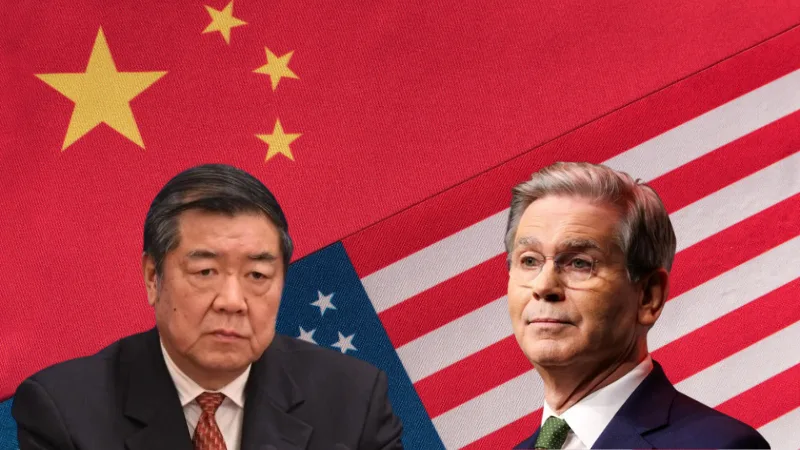On May 6, 2025, President Donald Trump stunned the global entertainment industry by announcing a sweeping 100% tariff on all foreign-produced films entering the United States. The policy, framed as a “national economic and cultural security measure,” has already triggered panic in Hollywood, fierce backlash abroad, and speculation about retaliatory actions from major film-producing nations like China, France, and South Korea.
This move—unprecedented in scale and scope—could fundamentally reshape the global media industry, disrupt streaming content pipelines, and potentially strain diplomatic relations.
What Prompted the Tariff?
During a press conference at the White House, President Trump cited two primary reasons behind the decision:
- Protecting American Jobs and Culture
“We’re going to put America first in Hollywood, just like we’ve done in steel and autos,” Trump said. “Why are we letting foreign films flood our markets, dominate our screens, and replace American values with globalist propaganda?” - Trade Imbalance and Intellectual Property Concerns
The Trump administration argues that foreign film industries, especially in China and Europe, receive heavy state subsidies that allow them to outcompete U.S. productions globally. According to senior officials, foreign markets often restrict American films, while the U.S. remains wide open to theirs.
This announcement followed months of back-and-forth trade posturing, including Trump’s earlier threat to impose tariffs on TikTok-related companies and Chinese electric vehicles. Now, the entertainment sector has entered the geopolitical crossfire.
Immediate Fallout in Hollywood
The Motion Picture Association (MPA) issued a blistering response within hours:
“This reckless move threatens tens of thousands of jobs across America’s entertainment ecosystem. Tariffs on film imports mean fewer titles, reduced revenues, and increased consumer costs.”
Streaming giants like Netflix, Amazon Prime Video, and Apple TV+, all of which rely on a mix of foreign and domestic content, now face a pricing dilemma. European crime dramas, Korean thrillers, and Japanese anime—all significant contributors to subscriber retention—may become cost-prohibitive or be pulled altogether.
Stock Market Reaction:
Shares of major entertainment conglomerates like Disney, Netflix, and Warner Bros. Discovery saw sharp volatility. Analysts on Wall Street warn that the ripple effects could cascade through licensing agreements, content distribution deals, and box office revenues.
International Backlash
The European Union’s Trade Commission quickly condemned the policy, calling it a “flagrant violation of WTO norms.” French President Emmanuel Macron labeled it “an attack on artistic freedom.”
South Korea, which has seen its entertainment exports explode in recent years, especially K-dramas and K-pop crossovers, hinted at a potential countermeasure: tariffs on U.S. streaming platforms and tech hardware.
Meanwhile, China called the move “blatantly hostile” and is reportedly exploring retaliatory restrictions on U.S. studio operations in its lucrative box office market—long considered a growth pillar for Hollywood.
How This Could Backfire on U.S. Studios
Ironically, the policy aimed at protecting American filmmakers may backfire. Here’s why:
- Lost International Collaborations
Many Hollywood blockbusters now involve joint financing, actors, and production with foreign studios. Tariffs could deter such co-productions. - Retaliatory Quotas
Countries may respond with quotas limiting American film access to their domestic markets—a serious blow considering international box office often surpasses domestic revenues. - Indie Film Casualties
Independent U.S. studios and distributors that rely on European film festival content for niche markets stand to lose the most, as they cannot easily replace curated global titles.
What It Means for Viewers
For everyday Americans, the impact could be immediate and noticeable:
- Fewer Foreign Films on Streaming Platforms
Platforms may purge imported titles to avoid high costs, reducing cultural diversity and storytelling variety. - Higher Subscription Fees
Content shortages and licensing headaches could push services like Hulu, Netflix, and Max to raise prices. - Reduced Theater Variety
Indie cinemas, which often rely on international films for their lineups, may face programming gaps and revenue loss.
Industry Reactions: Divided Lines
The domestic film industry appears split. Some conservative filmmakers praised the decision, calling it a win for “cultural sovereignty.”
Filmmaker Dinesh D’Souza tweeted,
“Finally, a President who defends American cultural values. Hollywood should make movies for Americans—not the globalist elite.”
In contrast, Oscar-winning director Chloe Zhao, who was born in China but works in the U.S., called it “a dangerous escalation that politicizes art.”
Could This Lead to a Global Media War?
The entertainment industry is now caught in a larger geopolitical shift: a trade war not over cars or steel, but storytelling.
If other nations impose retaliatory measures, U.S.-based platforms like Disney+ and Paramount+ may lose content rights or licenses in global markets. Hollywood’s dominance, long protected by open access and soft power, could face a coordinated resistance.
And that has deeper consequences—not just for profit margins, but for how American stories are seen abroad.
What Investors Need to Watch
This isn’t just a cultural issue—it’s an investment risk.
Key signals to monitor:
- Studio Earnings Calls: Expect revised guidance from Netflix, Warner Bros., and Paramount.
- Policy Reversals or Litigation: Hollywood lobbying groups may sue the federal government.
- Tech Stock Volatility: Platforms dependent on foreign content could see higher churn or margin compression.
- Consumer Sentiment: Viewer backlash over reduced variety or price hikes may hurt brand loyalty.
Investors holding entertainment or tech-heavy ETFs (like XLC or $QQQ) should reassess exposure based on potential prolonged uncertainty.
Final Thoughts: An Overreach or a Strategic Gambit?
Supporters argue Trump is leveling the playing field and forcing Hollywood to invest more in domestic content and values. Critics see it as a dangerous act of cultural isolationism that risks turning America’s greatest soft-power asset into a pawn in global politics.
Either way, the battle lines are drawn—and the script for Hollywood’s future just got a massive rewrite.




